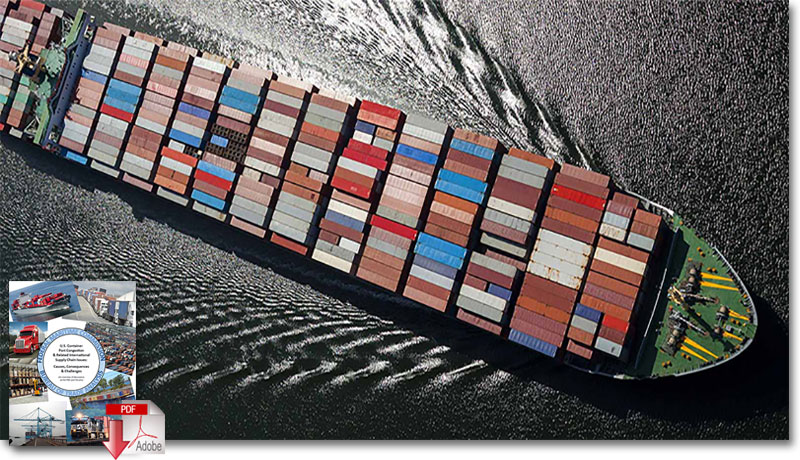Federal Maritime Commission Gets Real About U.S. Container Port Congestion

The Federal Maritime Commission believes that infrastructure investment is at the core of the discussion, however, other factors must be addressed in the near term to ensure an efficient and reliable international ocean transportation system and the relevant supply chain.
In a development certain to resonate with logistics managers, the Federal Maritime Commission (FMC) has just released a report entitled U.S. Container Port Congestion & Related International Supply Chain Issues: Causes, Consequences & Challenges.
The report organizes and further develops stakeholder discussion around six major themes that emerged at the 2014 FMC Port Forums held at major gateway ports – investment and planning; chassis availability and related issues; vessel and terminal operations; port drayage and truck turn-time; extended gate hours, PierPASS and congestion pricing; and collaboration and communication.
These forums provided a unique opportunity for industry stakeholders to gather around the country to share their views on the causes, consequences and challenges surrounding congestion at ports and other parts of the intermodal system, as well as share ideas for possible solutions.
“International trade relies on our nation’s ports, therefore port congestion is a paramount question at the international supply chain level, and is not a solely domestic concern,” says FMC Chairman Mario Cordero.
He notes, too, that President Obama moved the Build America Investment initiative forward. Inclusive in the initiative was the need for investment in our ports.
“In line with the Administration, the Commission is committed to addressing the question of congestion at our vital port gateways,” says Cordero.
The FMC believes that infrastructure investment is at the core of the discussion, however, other factors must be addressed in the near term to ensure an efficient and reliable international ocean transportation system and the relevant supply chain.
The report addresses current and anticipated future challenges caused by congestion at U.S. port gateways, and comments on the causes and effects of congestion with the objective of facilitating further discussion on potential solutions.
Good reading. Now do something.
Read: Global Importers Move their Business from West to East Coast Ports
Article Topics
Federal Maritime Commission News & Resources
U.S. House passes the Ocean Shipping Reform Act, with Biden set to sign it into law DOJ and FMC intend to continue partnership focused on fair competition in ocean shipping sector Ocean Shipping Reform Act of 2021 is passed by U.S. House of Representatives White House executive order ‘encourages’ freight rail and ocean sectors to make changes FMC leadership calls on the White House for maritime worker vaccinations FMC urges Congressional leaders to address port terminal needs During COVID-19 Maritime supply chain concerns are voiced by the Federal Maritime Commission More Federal Maritime CommissionLatest in Transportation
The Two Most Important Factors in Last-Mile Delivery Most Companies Unprepared For Supply Chain Emergency Baltimore Bridge Collapse: Impact on Freight Navigating Amazon Logistics’ Growth Shakes Up Shipping Industry in 2023 Nissan Channels Tesla With Its Latest Manufacturing Process Why are Diesel Prices Climbing Back Over $4 a Gallon? Luxury Car Brands in Limbo After Chinese Company Violates Labor Laws More TransportationAbout the Author














